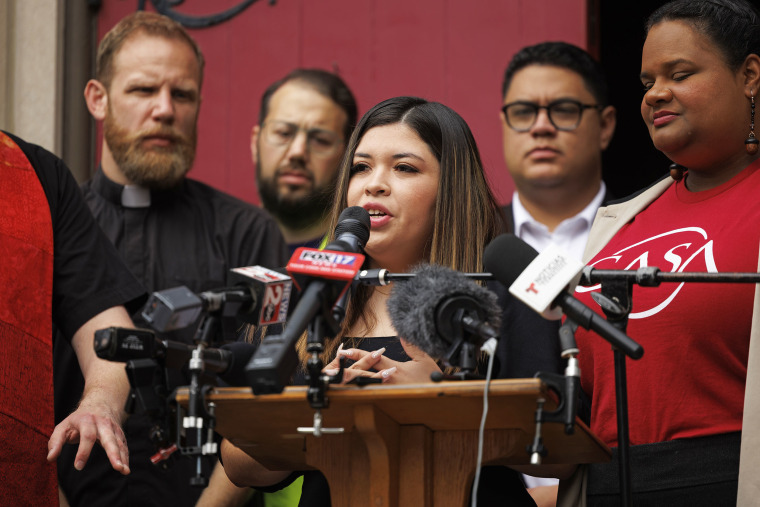The Justice Department and lawyers for Kilmar Abrego Garcia, the man the Trump administration mistakenly deported to El Salvador, will debate the terms of his release from federal custody on Wednesday, as he awaits trial on smuggling charges.
Abrego, 29, a legal permanent resident of the U.S. who lives in Maryland, was deported in March to a high-security prison in the Central American nation, in what the government called an “administrative error.” After months of debate in court, Abrego was brought back to the U.S. earlier this month.
Upon his return, he was charged with two federal felonies: conspiracy to unlawfully transport illegal aliens for financial gain and unlawful transportation of illegal aliens for financial gain. Abrego Garcia has pleaded not guilty to both charges.
At Wednesday’s hearing, which is expected to be brief, Magistrate Judge Barbara Holmes will discuss the conditions of release she believes should be imposed on Abrego.
As she explained in her ruling ordering his release on Sunday night, Holmes may restrict Abrego’s travel to necessary trips to the Middle District of Tennessee for court appearances and attorney meetings, and within his home state.
She also suggested she may impose anger management counseling, regulate his contact with his wife, Jennifer Vasquez Sura, and his children. Abrego’s wife filed two protective orders against him in years past, but they have since reconciled.

Abrego is likely to be detained and placed into Immigration and Customs Enforcement custody for deportation proceedings shortly after he is formally released from federal custody.
Although officials facilitated Abrego’s return to the U.S. pursuant to court order, he still initially entered the country illegally and is likely to be subject to deportation proceedings, separate from his federal case.
Abrego’s case is a high-profile example of the Trump administration taking unprecedented steps to implement the president’s campaign promise to curb immigration.
Those efforts have included apprehending foreign students en masse, most of whom are Muslim, citing an obscure provision in the Immigration and Nationality Act of 1952 to justify their detainment. The provision allows for the secretary of state to “personally determine” if certain foreign nationals pose a threat to U.S. foreign policy.
In March, the administration abruptly deported hundreds of men it accused of being violent gang members, including Abrego, to the high-security prison in El Salvador. The administration then appeared to defy a judge’s order to return the men to the U.S.
And in recent weeks, immigration authorities have been raiding farms, hotels, and other worksites to detain undocumented immigrants.

